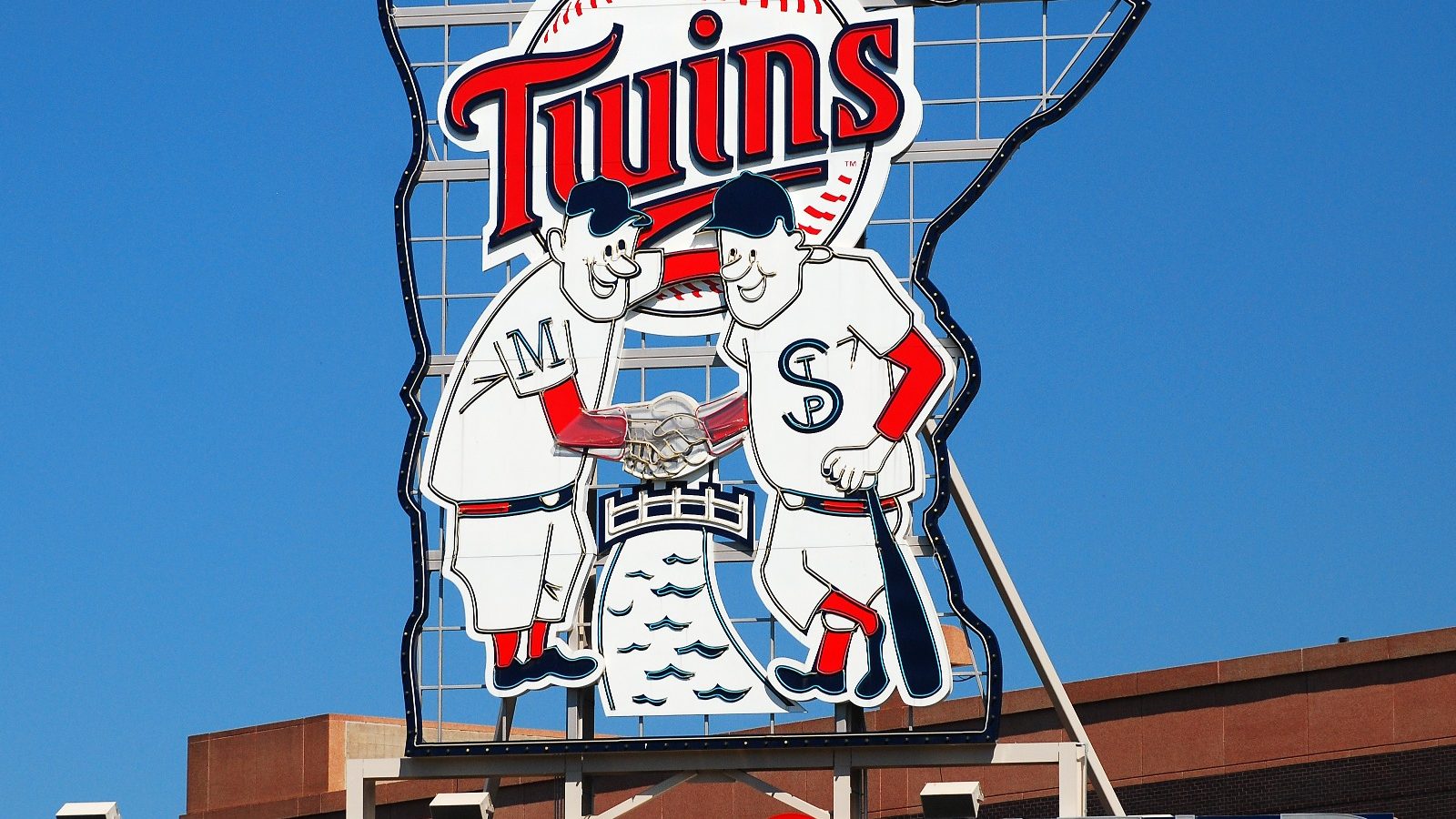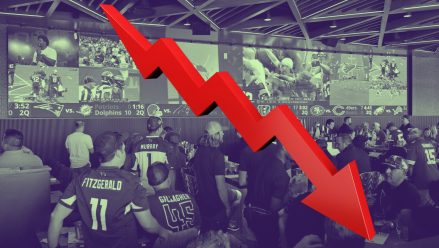A new Minnesota bill that appears tribal friendly at first glance might not be. Senators Matt Klein and Nick Frentz last Tuesday filed SF 3414, which would allow for 11 retail and digital sports betting licenses tethered to tribal casinos. It would also create an “equalization fund” so that smaller gaming tribes would be able to get a bigger piece of the gambling pie.
The bill is currently in the State and Local Government Committee. A motion to move it to the Commerce and Consumer Protection Committee failed Wednesday. No hearing is scheduled.
The bill would also require Minnesota’s 11 tribes to be regulated and taxed by the state and includes unusual provisions. It is similar to SF 757, which Klein filed earlier in the session, and which did not get out of committee and was left for dead. The bill has stringent consumer protections, including banning push notifications when an app is closed, banning individualized promotions, and allowing the state to set default limits on how much and how often bettors play.
In general, federally recognized gaming tribes avoid state regulation. Tribes in Arizona, Connecticut, and Michigan agreed to it, and all gave up exclusivity and some amount of sovereignty. Florida’s Seminole Tribe and Washington State’s tribes are among those that maintain exclusivity and sovereignty.
Colorado’s tribes are fighting in court for a deal like the Seminoles have, which allows bets to be considered placed where received and establishes a tribal council as the regulator. California’s tribes continue to talk with commercial operators but have indicated they will dictate the terms of any California gaming expansion in order to maintain exclusivity and sovereignty.
The Minnesota bill does not appear to include what some in the industry refer to as the “magic” language that would allow for bets to be considered placed where received. That language, which is included in the Seminole compact, allows for any bet placed in Florida to be considered placed on tribal land, and therefore, not subject to state regulation or tax.
Minnesota’s Indian Country is focused on maintaining control over any gambling expansion, yet lawmakers there continue to offer bills that would dilute the tribes’ power. They also continue to try to mollify two other gambling groups in the state: the horse-racing industry and charitable gaming.
Minnesota’s two horse tracks want in on sports betting, but the tribes oppose allowing any other groups access to gambling. And in 2023, after a Minnesota Court of Appeals banned the “open-all” option on electronic pull tabs, lawmakers began trying to find a way to raise more funding for charitable gaming, which makes money from pull-tab machines.
Suffice to say, it’s complicated.
All tribes would benefit
The latest bill would send $3 million or 15% of tax revenue (whichever is lower) from digital sports betting to horse-racing organizations annually. It also allows for “tax-relief payments” to charitable gaming.
SF 3414 would also create an equalization fund, which appears similar to California’s Revenue Sharing Trust Fund. Under it, California’s non-gaming tribes receive an annual payment from a fund to which gaming tribes contribute. In Minnesota, 15% of tax revenue would be earmarked for a similar fund. Tribes that partner with a sports betting operator that commands less than 10% of market share would be entitled to payments from the fund.
But the bill also calls for sports betting licensees to be regulated by the state gaming control board and pay a 22% tax on gross gaming revenue.
Tribes that compact (an agreement made between a tribe and a state) for gaming under the Indian Gaming Regulatory Act cannot be taxed for gambling by a state. Tribes in Arizona, Connecticut, and Michigan opted not to compact for digital sports betting and agreed to be regulated and taxed by the states. The Seminoles agreed to pay the state of Florida a revenue share for the right to a monopoly on statewide mobile sports betting. Washington’s tribes don’t pay a tax or revenue share.
The bill would require wagering platforms to display the logo of the “mobile sports betting operator.” This section could cause some confusion, as a sports betting operator is often defined as a commercial operator, like ESPN Bet of Fanatics Sportsbook. But in this case, SF 3414 defines the “mobile sports betting operator” as “an Indian Tribe that receives a license from the commissioner.” The question of whose logo appears on a platform is a contentious issue in California, where tribes say they want platforms to have their names rather than DraftKings or FanDuel, for example.
A year ago, at the Indian Gaming Association Tradeshow & Convention in Anaheim, California Nations Indian Gaming Association (CNIGA) Chairman James Siva said: “They won’t be operators in the state. If they want to be partners like the slot companies we work with, then we can do that. I think they are starting to come around.”
Under the Minnesota bill, licenses would only be issued to tribes, who could then partner with commercial operators, which are defined as “mobile sports betting operators.” The tribes would pay a $2,125 license fee while the operators they contract with would pay a $250,000 application fee or an $83,000 annual renewal fee. Tribal licenses would be valid for 20 years, each tribe would be entitled to one skin, or platform, and only entities “wholly owned and operated” by a tribe could apply for license.
Minnesota’s tribes have historically said they will not agree to a gambling expansion that dilutes their exclusivity or sovereignty. Minnesota Indian Gaming Association (MIGA) Executive Director Andy Platto said lawmakers had created a deal that “is currently supported by all stakeholders” ahead of the 2025 session.
“Hopefully, we will put this issue to rest and Minnesota will have a tribally exclusive [set-up] that respects tribal sovereignty and allows every tribe to a share regardless of market share,” he said at the time.
Other unique proposals
In addition to the tribal-related issues, SB 3414 includes fairly stringent advertising guidelines and rigorous responsible gambling guardrails. Among them:
- The regulator could require operators to monitor accounts for problem gambling and mandate ways for operators to limit betting, particularly “by an individual whose ability to control impulsive wagering is impaired in any way.”
- A 24-hour manned helpline would be required. The 1-800-GAMBLR hotline would be required on every platform.
- Gambling advertisements in any medium would be prohibited if 30% or more of the expected audience is under the age of 21. Betting ads would also be banned at elementary and high schools, as well as on college campuses and in any college advertising or marketing materials.
- The phrase “risk-free” would be banned in advertising.
- Operators would not be able to offer “individual promos.” Per the bill text, “No licensee or other person may offer an incentive or promotion to participate in sports betting to an individual that is not offered to all individuals at large on the same terms.” This language does not appear in any current wagering laws, and could potentially affect commercial VIP programs or even new customer programs.
- Operators would be required to offer bettors the ability to set personal limits, including the amount lost or wagered in a 24-hour and 30-day period, how much a bettor can deposit within 24 hours, and how much time a bettor can be logged in within a 24-hour period. In addition, consumers must have the option to set a cooling-off period.
- The state would set default limits at $500 lost or wagered within 24 hours, $3,000 lost or wagered within a month, and $500 deposited within 24 hours, along with a 72-hour cooling-off period.
- Players would be able to extend a cooling-off period immediately but would have to wait seven days to make it shorter.
- Push notifications would be banned when an app is not active or when a bettor is in a cooling-off period or on an exclusion list.
- The bill would also legalize and regulate daily fantasy sports contests and allow for wagering on esports.





